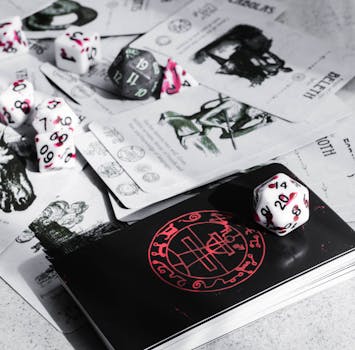The evolution of gaming has been profoundly influenced by digital tools, transforming the landscape of entertainment forever. As technology advances, these tools shape not only how games are created but also how they are experienced by millions of players worldwide.
From the stunning graphics of modern titles to social interactions in multiplayer environments, digital tools have fundamentally changed gameplay dynamics. This article explores the multifaceted impact of these advancements on the gaming industry.
Understanding the breadth of digital tools applied in gaming reveals a rich tapestry of creativity and innovation. By examining various aspects—from game development to user engagement—we appreciate the depth of this transformative journey.
The Rise of Game Development Technologies
Game development technologies have drastically progressed, with tools like Unity and Unreal Engine leading the way. These platforms allow developers to create complex and immersive worlds with relative ease.
The availability of robust game engines has democratized game development, enabling indie developers to enter the market. Consequently, this encourages innovation and diversity in gameplay experiences.
Access to powerful development kits and frameworks allows for incredible storytelling opportunities. As developers harness these tools, the narrative depth of games continues to evolve, enriching players’ experiences.
Furthermore, the integration of artificial intelligence is creating smarter non-player characters and dynamic environments. This evolution enhances realism and player engagement, fostering a more immersive gaming atmosphere.
The rise of cloud computing plays an essential role too, providing storage solutions and facilitating seamless collaboration. By utilizing cloud technologies, teams can work together effectively, regardless of geographic barriers.
Enhancements in Graphics and Audio
Technological advancements have dramatically improved graphics quality, offering hyper-realistic visuals that captivate players. Enhanced graphics create more engaging and lifelike environments, pulling gamers deeper into the experience.
Alongside visuals, audio quality has also seen significant improvements. Surround sound systems and advanced audio engines contribute to a richer gaming atmosphere, making every sound more immersive.
Ray tracing technology further elevates graphics, providing realistic lighting and reflections. This innovation enhances the visual fidelity of games, making every scene more believable and engaging for players.
As developers continue to leverage high-definition graphics and immersive soundscapes, the bar for player expectations is raised. This relentless pursuit of quality compels studios to innovate continually.
Furthermore, virtual reality (VR) and augmented reality (AR) technologies are pushing boundaries. These emerging technologies immerse players in entirely new dimensions of interaction and experience, reshaping how games are played.
The Role of Online Multiplayer and Social Interaction
Online multiplayer capabilities have revolutionized the gaming landscape, transforming solitary gameplay into social experiences. Players worldwide can now team up or compete, fostering a sense of community.
Digital tools facilitate social interactions within games, from messaging systems to voice chat features. These enhancements allow players to communicate effectively, strategize, and form friendships globally.
Moreover, streaming platforms such as Twitch have integrated gaming into social media culture. Gamers can share their experiences live, attracting viewers and building vast online communities.
Events like eSports tournaments have gained enormous popularity, showcasing top-tier competitive gaming. Not only do these events highlight player skill, but they also attract significant audiences and sponsorships.
Thus, the social aspect of gaming has become as vital as the gameplay itself. As players engage online, they create memories and forge connections that transcend geographical boundaries.
Gamification in Non-Gaming Sectors
Gamification strategies extend beyond traditional gaming, influencing various fields such as education and marketing. Digital tools allow organizations to engage users with game-like experiences to enhance learning and productivity.
In educational settings, gamification engages students through interactive lessons and rewards systems. Tools like Kahoot! and Quizizz foster competitive learning environments, making education more enjoyable.
Similarly, businesses use gamified elements to motivate employees and improve retention. Incorporating leaderboards and rewards encourages participation and drives performance, enhancing customer loyalty.
Digital tools that facilitate gamification help individuals achieve objectives in a fun and engaging manner. This trend showcases how gaming principles can inspire growth and innovation in various industries.
The crossover between gaming and non-gaming sectors illustrates the versatility of digital tools. As organizations embrace these strategies, the potential benefits are substantial, enhancing user engagement and satisfaction.
Mobile Gaming and Accessibility
Mobile gaming has surged in popularity, driven by advancements in smartphones and mobile technology. Digital tools enable developers to create games accessible to a broader audience, regardless of their physical location.
The convenience of mobile gaming allows players to enjoy their favorite titles on the go, making gaming more integrated into daily life. Accessibility is a crucial factor affecting the industry’s growth and reach.
Moreover, mobile platforms offer opportunities for developers to experiment with unique gameplay mechanics. This versatility leads to innovative game designs that cater specifically to mobile users’ preferences.
In addition, cross-platform play is increasingly becoming a norm, allowing mobile gamers to compete with console and PC players. This creates an inclusive gaming environment that benefits all types of players.
As mobile gaming continues to evolve, the industry will likely witness further diversification in genres and styles. This expansion encourages even more players to embrace gaming as a core aspect of their entertainment.
In-Game Economies and Monetization Strategies
Digital tools significantly influence in-game economies and monetization models, creating diverse revenue streams for developers. Microtransactions and loot boxes have become common, fostering ongoing player engagement.
Through these systems, players can personalize their experiences by purchasing cosmetic items or enhancements. While some players appreciate these options, others express concerns about their impact on game balance.
Developers must navigate the fine line between rewarding investment and promoting fairness. Maintaining balance in in-game economies is crucial for sustaining player satisfaction and trust.
The rise of free-to-play models has transformed the industry, ensuring higher player engagement. By providing free access with purchasable content, games can reach massive audiences without upfront costs.
As the industry evolves, it will be essential for developers to create fair monetization strategies. These approaches must respect players’ preferences while ensuring sustainable revenue for studios.
Conclusion
The impact of digital tools on gaming is profound, reshaping how games are developed, played, and experienced. As technology continues to advance, the possibilities for innovation remain limitless.
From enhancing visuals and soundscapes to facilitating social interactions, digital tools have led to a more immersive gaming environment. This evolution enriches the experiences of players around the globe.
As gaming evolves within various sectors, the influence of gamification is evident, bridging gaps and enhancing engagement. In this landscape, mobile gaming thrives, making the hobby accessible to many.
Moreover, as in-game economies develop, balancing monetization and fairness becomes increasingly important. The industry must evolve responsibly, prioritizing player satisfaction and trust.
Ultimately, the future of gaming looks promising, with technological advancements offering exciting opportunities for players and developers alike. The journey is only just beginning.


